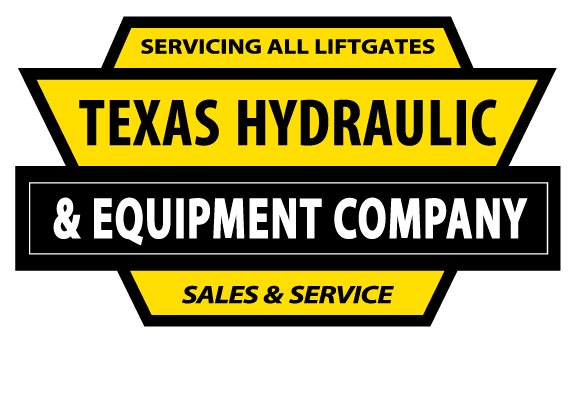Liftgates: Operation, Benefits, and Service Explained
Logistics providers transport around 70% of all goods in the United States every year. According to the American Trucking Association, industry revenues reached over $791 billion in 2019. Much of this would not be possible without liftgates, essential pieces of equipment that help workers load and unload cargo. Learn more about liftgates: their operation and benefits, plus how liftgate service works.
What Is a Liftgate?
Simply put, a liftgate is a foldable metal platform that's commonly installed on commercial trucks. You can place cargo onto the platform and then raise it to load your items into the truck. Lowering the liftgate platform allows you to unload your items from the truck.
Liftgates are useful for handling cargo that's heavy, extremely large, or otherwise too unwieldy to move by oneself. Liftgates can also help unload a lot of cargo at once, especially when it's in several small pieces or boxes. The average liftgate's lifting capacity is around 2,500 pounds.
How Does a Liftgate Work?
Liftgates can include mechanical, hydraulic, or pneumatic systems for raising and lowering their foldable cargo platforms. You typically operate them with electric relay switches, which are typically mounted on the passenger side of the truck's bed or box near the liftgate. When you first activate a liftgate's switch, for some models it will unfold to extend its platform. On more simple models, platforms are unfolded by hand. Once extended, you can then raise or lower the platform for loading and unloading.
What Does Liftgate Service Mean?
Freight carriers offer liftgate service when they pick up or deliver cargo. Their commercial trucks use powered lifts to raise and lower cargo as needed. As mentioned earlier, liftgate service is useful for cargo that's too heavy for workers to handle by themselves. You may have also heard this referred to as "liftgate pickup" or "liftgate delivery." Freight carriers outside the United States may call it "tailgate service."
During liftgate pickup or delivery, workers move your cargo on or off the truck's liftgate platform. Some providers may also offer inside delivery, in which workers also move the cargo to a specified inside location after transporting it off the liftgate platform.
5 Things To Consider When Buying a Liftgate
Size of Your Cargo Load
When looking at liftgate options, the first thing to consider is your cargo loads' typical size and weight. You will likely have three classes of liftgate to choose from light, medium, and heavy-duty. Depending on the manufacturer and style of liftgate you want, weight capacities can vary between 1,000 and 5,000 pounds.
Liftgate Height
Both laden and unladen measurements are key in determining compatible liftgates for each commercial truck. When measuring the bed height of your truck, it is important to relay what state the truck was in and confirm on your estimate that the quoted gate has a bed range that meets your truck’s measurement. If outside of the range, it could mean that the liftgate would not fold/unfold properly. A laden measurement accounts for the total height of your truck bed when it's filled up to maximum capacity. Meanwhile, an unladen measurement refers to a truck bed's height when the bed is empty.
Vehicle Compatibility
Liftgate design also accounts for a truck's floor measurements, especially its width. Wider vehicles require wider liftgates. Similarly, narrow liftgates can accommodate more narrow trucks. For best results, make sure you pick a liftgate whose width matches the width of your truck.
Platform Materials
Any liftgate you purchase for your commercial trucks must be strong enough to handle your cargo. You'll likely encounter liftgates made from either steel or aluminum. You should think about cost, but don't forget about use and lifespans when choosing a liftgate.
Aluminum liftgates are designed to handle heavier-weight cargo. They're also less likely to corrode and often last longer than their steel counterparts. On the other hand, steel liftgates are less expensive to install. Major downsides include shorter lifespans and greater susceptibility to corrosion.
Energy Supply
When selecting a liftgate, you should consider its power method. We've mentioned that liftgates can operate on hydraulic and mechanical systems which rely on either one or two heavy duty batteries for power. You'll also want to consider whether to use your truck's onboard battery or install a separate battery to power your liftgate. A separate battery can provide power for heavy usage and or heavy duty gates while avoiding excessive drain on your truck's battery. If you expect less frequent usage, power from your truck's native battery may be more economical.
Your Liftgate Professionals in Dallas-Fort Worth
You count on your liftgates to help keep your operations running smoothly. Count on Texas Hydraulics & Equipment, LLC, to keep your liftgates at peak performance. We've proudly served commercial clients in the Dallas-Fort Worth area and beyond for more than 60 years. We deliver unmatched service, parts, and expertise for your hydraulic liftgate installation, maintenance, sales, and repair needs. Get a quote now by completing our online form. Got questions about how you can equip your trucks for liftgate service? Call us at (214) 748-7551 or text (972) 435-6058.
Image Source: Jupiterimages / Getty Images

